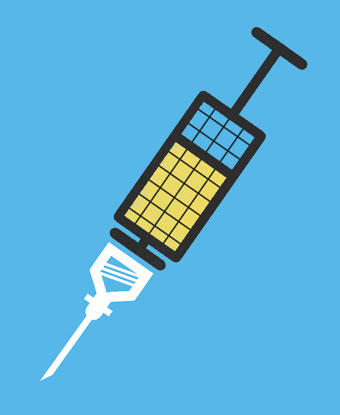By John Thornton | 1 June 2013
‘Data mining’ in the NHS could allow spending to be targeted on preventative treatments that take account of lifestyles and genetic make-up

According to the World Health Organisation, health care represents only about 10% of the activities that determine your health. Environmental influences and human biology account for about 20% each and lifestyle (smoking, obesity, stress, alcohol consumption, etc) has a whopping 50% influence.
In 2012, the UK spent £104bn on health care and a lot of this was for drugs to treat and manage conditions such as hypertension, depression, high cholesterol and asthma.
In many cases, however, the effectiveness of these drugs has been shown to be below 50%. That means they have a positive effect on less than half of the people taking them, and in some cases on less than 30%.
This problem and its effects were debated at a recent Healthcare Advisory Forum event. Joel Haspel, director of Oracle Global Health Sciences, told delegates that the NHS and many other health care systems were focusing a lot of money on factors that had only a 10% influence on overall health. Many of the treatments we were financing were either ineffective or had a negative impact on the health of more than 50% of the recipients, he said.
This is simplifying a lot of complex research but it helps to explain one of the biggest challenges facing the NHS today. The biggest risk to human life is not infection but largely preventable illnesses, according to former Labour health minister Lord Darzi and academic Christopher Exeter, senior fellow of the Institute of Global Health Innovation at Imperial College.
In a recent PF opinion piece they argued that health policy and resources must shift from hospital-based treatment to early intervention and prevention (‘The price of inactivity,’ November 2012).
The key question is how to do this – particularly in times when the NHS is under immense pressure and funding is heavily constrained.
Part of the solution is that we all need to take greater ownership of our own health. But to do this we need to be better informed about lifestyle choices, diet and preventative strategies. This requires much better information to be made available and shared with the wider population, coupled with the availability of ‘trusted advisers’, real or virtual, to help guide us through a maze of perhaps conflicting and sometimes partial advice.
We all know that if you smoke, have a poor diet, exercise little and drink alcohol excessively it will have a detrimental effect on your health. What is needed is something much more sophisticated.
We are now beginning to see the convergence of genomics, the understanding and mapping of human genomes, personalised medicine and what has been termed ‘big data’, the ability to collect and analyse huge amounts of information.
This should eventually mean that we could all be given personalised advice on treatment and lifestyle changes to counter our ‘inherited’ health problems. And we would be prescribed only drugs that had been proven to work best in countering the way particular illnesses affected our genetic makeup.
The other half of this brave new world is that there needs to be a culture change in the NHS and care systems, with greater recognition of the importance and value of information and data mining.
Phil Koczan, chief clinical information officer at UCL Partners, speaking at the same Healthcare Advisory Forum event, said the aim should be to: capture consistent data once, as near to the point of care as possible; enable the safe and secure sharing of information; and join up clinical data to support patient care across organisational boundaries, including social care. In addition, patients should be given access to their own health care information.
This does also assume that most of us will want to become ‘informed’ patients who will act wisely on the information we are given.
John Thornton is an independent adviser and writer on business transformation, financial management and innovation

















